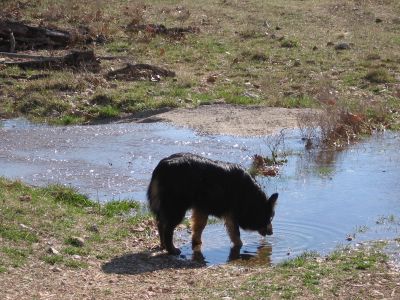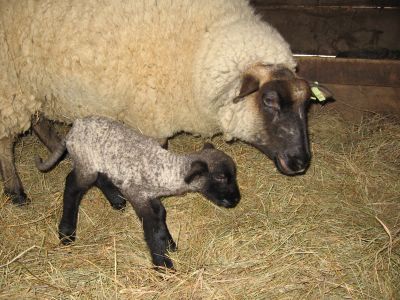 Compost: Miracle Or Malarky?
Compost: Miracle Or Malarky?
If gardening is the outdoor activity of the new millenium, then
compost is definitely the buzzword. This magical yet ingenuous process is, we are told, the answer to all of our problems. Rescuing our peach pits and plant clippings from a slow death in America's bulging landfills will fill our gardens with the ultimate soil amendment, while filling us with a supreme sense of environmentally correct satisfaction. And, oh yes, it's a great way to spend money.
The concurrent arrival each year of killing frost and gardening catalogs is no coincidence. Everyone knows that a gardener trapped indoors in the dead of winter can rationalize the purchase of almost anything--especially stuff we never knew we needed. Suddenly our simple backyard humus mills are incomplete without an ergonomic pile-turning tool and a box of Secret Compost Starter.
And surely our eggshells and apple cores deserve one of the high dollar 'professional' composting receptacles that seduce us with exciting names like The '49er
("Black Gold in Only Seven Weeks!"). Crafty entrepreneurs even offer special mail-order composting worms. Oh, please. If I want worms I'll get some from the Vend-A-Bait machine down at the liquor store once they get it working again.
I may have seen through the worm scam and resisted the catalog come-ons, but I will admit that I fell right into the composting trap. When I moved from urban Northern California to a remote Missouri farm, I was thrilled by the thought of turning plain old trash into practical treasure—especially when I discovered there was no garbage pick-up out here. Knowing I could never justify the purchase of a $200 trash can, I constructed a perfectly serviceable bin from wooden pallets and a tin-covered scrap of plywood that were laying around the farm.
I also started researching. I read fascinating, tell-all stories by expert composters (who I now realize are mad, and who lavish more attention on their potato peels than I do on my pets). There was, for example, the man who used scientific charts and hourly temperature readings to produce finished compost in only 14 days. His secret ingredient was abalone bits he happened to have handy—useless information for a girl who had just moved 1600 miles from the Pacific Ocean.
Then there was the woman who put everything through her enormous blender and poured it straight onto her garden plots. An intriguing idea, but I didn't think my 1930s Osterizer was up to the task of pulverizing blackberry brambles and frost-bitten tomato plants. I even, while under the influence of an extremely long snowstorm, ordered a 900-page book devoted solely to the art of composting, though I've never had the courage to open it.
After two years of dragging organic debris 150 feet across the barnyard to my little homemade bin, I finally grasped the real secret behind composting: It simply does not work. My compost pile looked exactly the same as when I started it.
Okay, so maybe I did ignore a few rules, like the one about not putting in anything thicker than a quarter of an inch (who has time to chop broccoli stems into tiny pieces?), or all those nitpicky layering laws. And granted, the one time I plunged my pitchfork into the pile to turn it, it was frozen solid. But this was trash, not a full-time occupation.
At least the animals made some use of my efforts. I once lifted the plywood lid and found a litter of kittens staring up at me. Another time I walked outside shortly after tossing a big bowl of tomato skins onto the pile and saw one of the sheep staggering across the barnyard with dripping red lips and an entire pallet stuck around its neck.
After that, I took to leaving the bin open to the sheep as a snack bar, figuring the manure would make it into the garden faster than any compost might. Eventually, I decided to save myself the walk and started dumping everything a few steps into the barnyard.
The seasons changed, but my uncompost pile did not. I ignored it. But then, on a rare walk past it, I stopped to brush back some coffee grounds that had spilled out from between the wooden slats at the bottom of the pile. The realization came slowly: Those weren't coffee grounds. I had compost—in only 800 days!
Once the shock wore off, I naturally rushed out and ordered three professional composters. I figure I'll be all set as soon as the Vend-A-Bait machine gets fixed and my West Coast friends express-mail me those abalone bits. While I'm waiting, I might even crack open that 900-page book.
This article originally appeared in Garden Design magazine. I now happily co-exist with no fewer than five producing compost bins.
Now is the perfect time to start composting. It really is a wonderful thing. I use my compost all around the garden: in my seed starting mix, worked in as a soil amendment in my raised beds, and as a side dressing/mulch on plants.
The whole composting process (as you can see) can be as easy or as complicated as you care to make it. But whether you buy your compost bins or make them yourself (out of anything from wood to chicken wire), I do suggest that you start with at least two. That way you will be able to stop adding to one, giving it a chance to fully break down while you fill the second bin.
No yard? No problem. There are even "kitchen composters" available, complete with squiggly little worms that hasten the breakdown process. Your potted plants will love you for the effort. You can even water them with compost tea.
Here are a few handy links to get you started turning your trash into treasure:
A Complete Guide To Composting
What Kinds Of Things Can I Compost?
Planet Natural's Composting Tips & Supplies
Composters.com
Composting Products From (My Favorite) Pinetree Garden Seeds
© FarmgirlFare.com
























